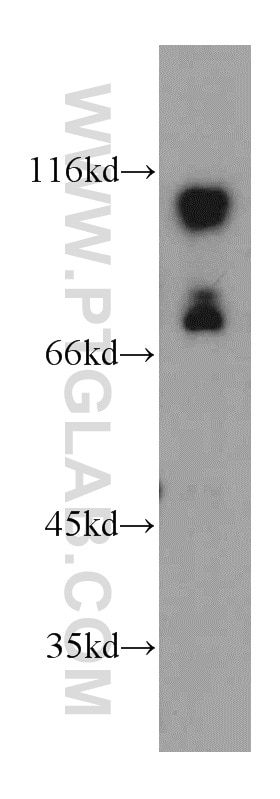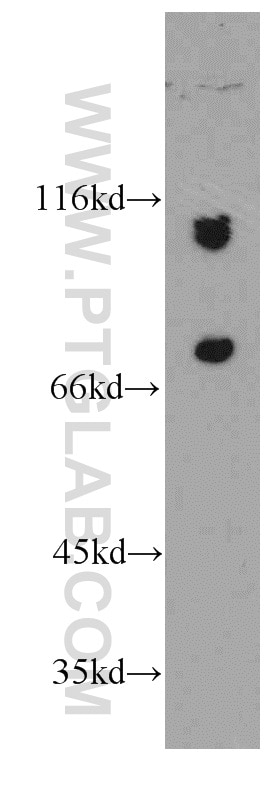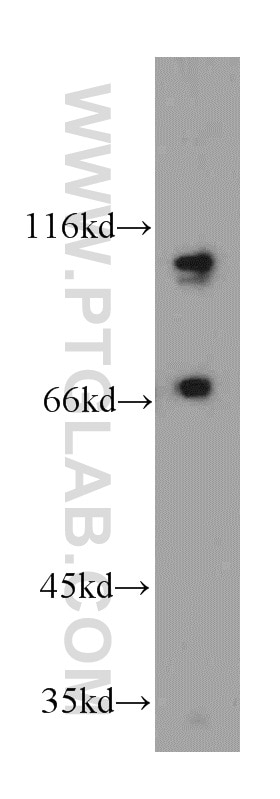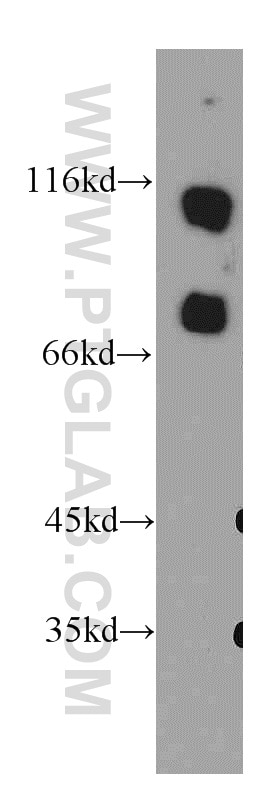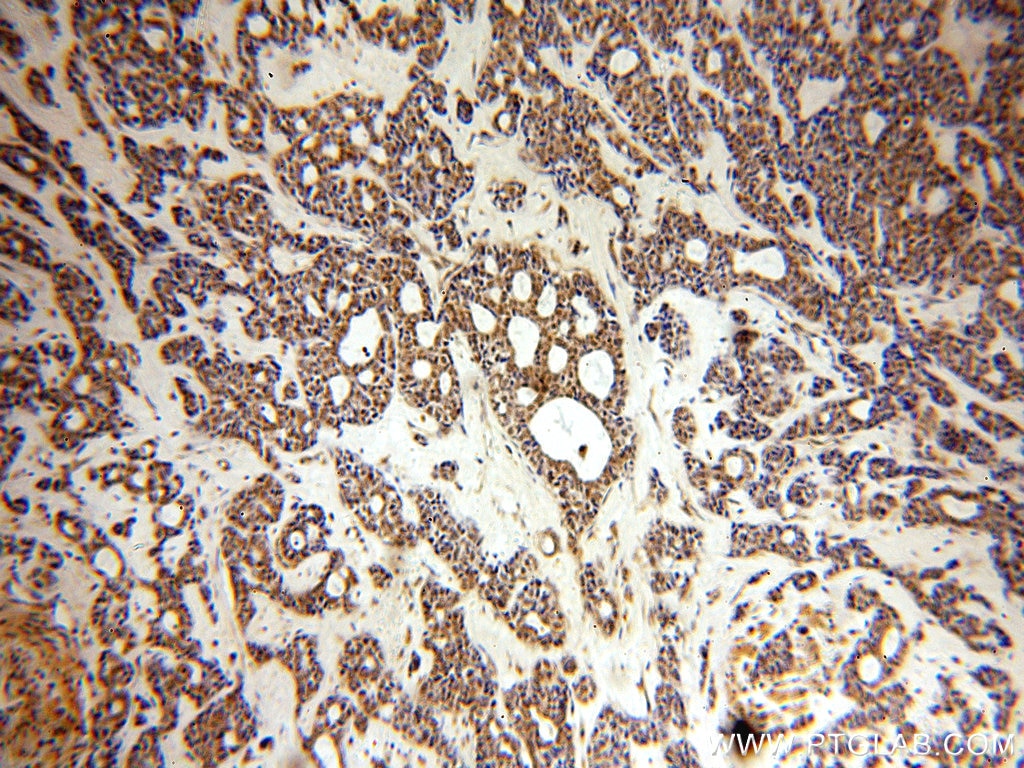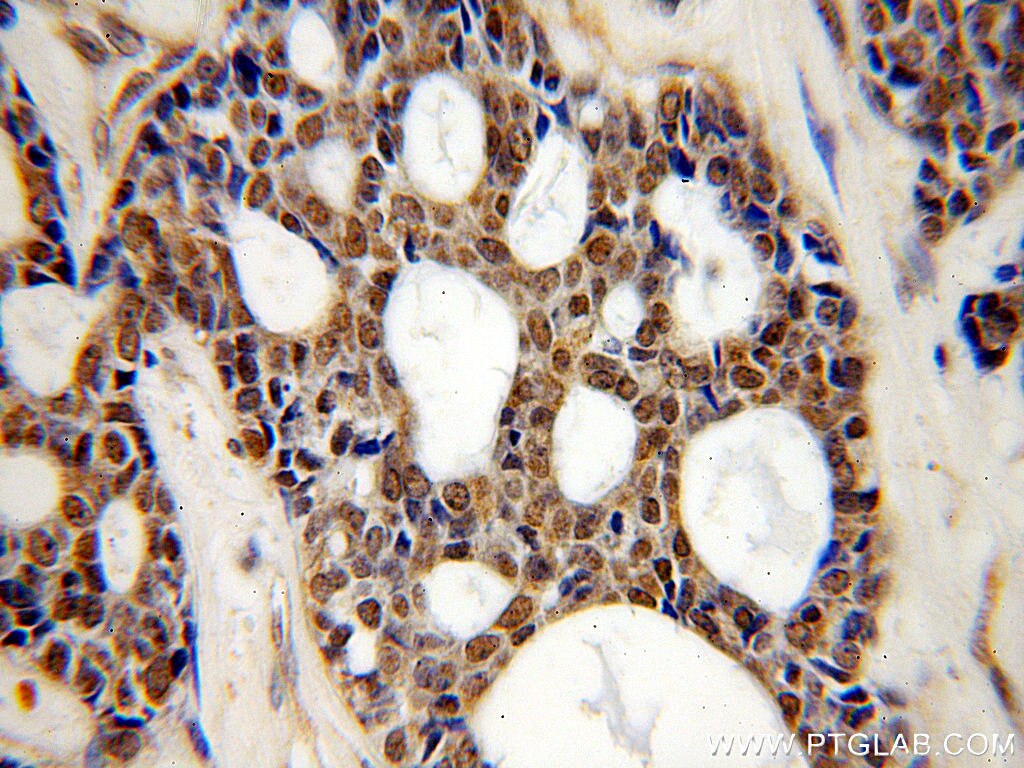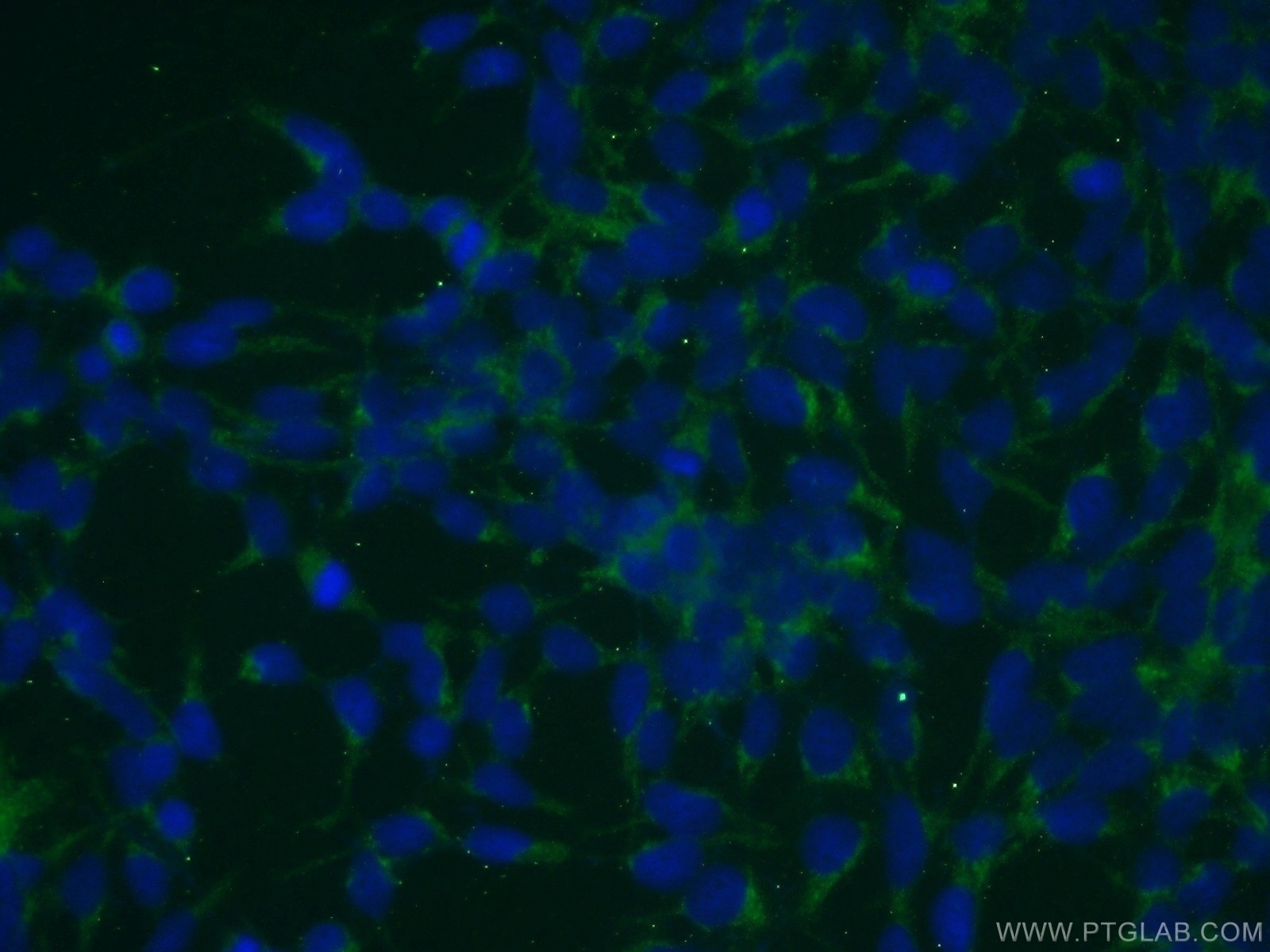Validation Data Gallery
Tested Applications
| Positive WB detected in | HEK-293 cells, A2780 cells, HeLa cells, MCF-7 cells |
| Positive IHC detected in | human cervical cancer tissue Note: suggested antigen retrieval with TE buffer pH 9.0; (*) Alternatively, antigen retrieval may be performed with citrate buffer pH 6.0 |
| Positive IF/ICC detected in | HEK-293 cells |
Recommended dilution
| Application | Dilution |
|---|---|
| Western Blot (WB) | WB : 1:500-1:3000 |
| Immunohistochemistry (IHC) | IHC : 1:20-1:200 |
| Immunofluorescence (IF)/ICC | IF/ICC : 1:20-1:200 |
| It is recommended that this reagent should be titrated in each testing system to obtain optimal results. | |
| Sample-dependent, Check data in validation data gallery. | |
Published Applications
| WB | See 2 publications below |
Product Information
20348-1-AP targets SMEK2 in WB, IHC, IF/ICC, ELISA applications and shows reactivity with human, mouse, rat samples.
| Tested Reactivity | human, mouse, rat |
| Cited Reactivity | human |
| Host / Isotype | Rabbit / IgG |
| Class | Polyclonal |
| Type | Antibody |
| Immunogen |
CatNo: Ag14156 Product name: Recombinant human SMEK2 protein Source: e coli.-derived, PGEX-4T Tag: GST Domain: 589-738 aa of BC060855 Sequence: GLKTKYEQEKDRQNQKLNSVPSILRSNRFRRDAKALEEDEEMWFNEDEEEEGKAVVAPVEKPKPEDDFPDNYEKFMETKKAKESEDKENLPKRTSPGGFKFTFSHSASAANGTNSKSVVAQIPPATSNGSSSKTTNLPTSVTATKGSLVG 相同性解析による交差性が予測される生物種 |
| Full Name | SMEK homolog 2, suppressor of mek1 (Dictyostelium) |
| Calculated molecular weight | 849 aa, 97 kDa |
| Observed molecular weight | 94-97 kDa, 87 kDa |
| GenBank accession number | BC060855 |
| Gene Symbol | SMEK2 |
| Gene ID (NCBI) | 57223 |
| RRID | AB_10694150 |
| Conjugate | Unconjugated |
| Form | |
| Form | Liquid |
| Purification Method | Antigen affinity purification |
| UNIPROT ID | Q5MIZ7 |
| Storage Buffer | PBS with 0.02% sodium azide and 50% glycerol{{ptg:BufferTemp}}7.3 |
| Storage Conditions | Store at -20°C. Stable for one year after shipment. Aliquoting is unnecessary for -20oC storage. |
Protocols
| Product Specific Protocols | |
|---|---|
| IF protocol for SMEK2 antibody 20348-1-AP | Download protocol |
| IHC protocol for SMEK2 antibody 20348-1-AP | Download protocol |
| WB protocol for SMEK2 antibody 20348-1-AP | Download protocol |
| Standard Protocols | |
|---|---|
| Click here to view our Standard Protocols |
Publications
| Species | Application | Title |
|---|---|---|
Oncol Lett AMPK decreases ERK1/2 activity and cancer cell sensitivity to nutrition deprivation by mediating a positive feedback loop involving eEF2K. | ||
Exp Cell Res Protein phosphatase 4 mediates palmitic acid-induced endothelial dysfunction by decreasing eNOS phosphorylation at serine 633 in HUVECs |

